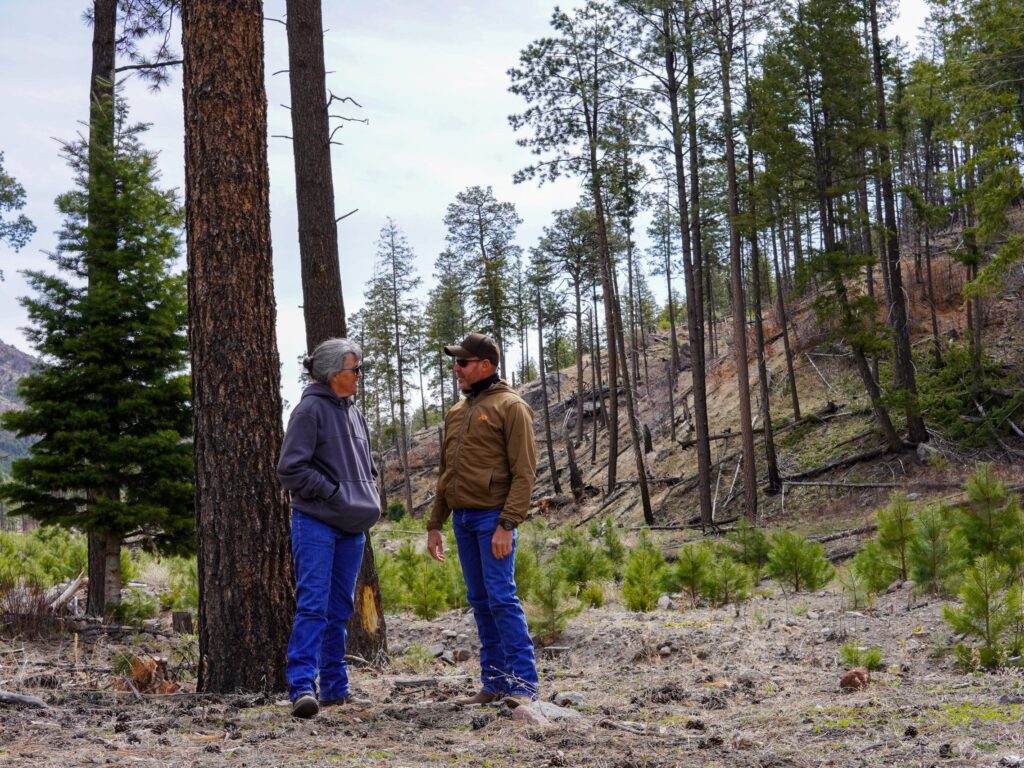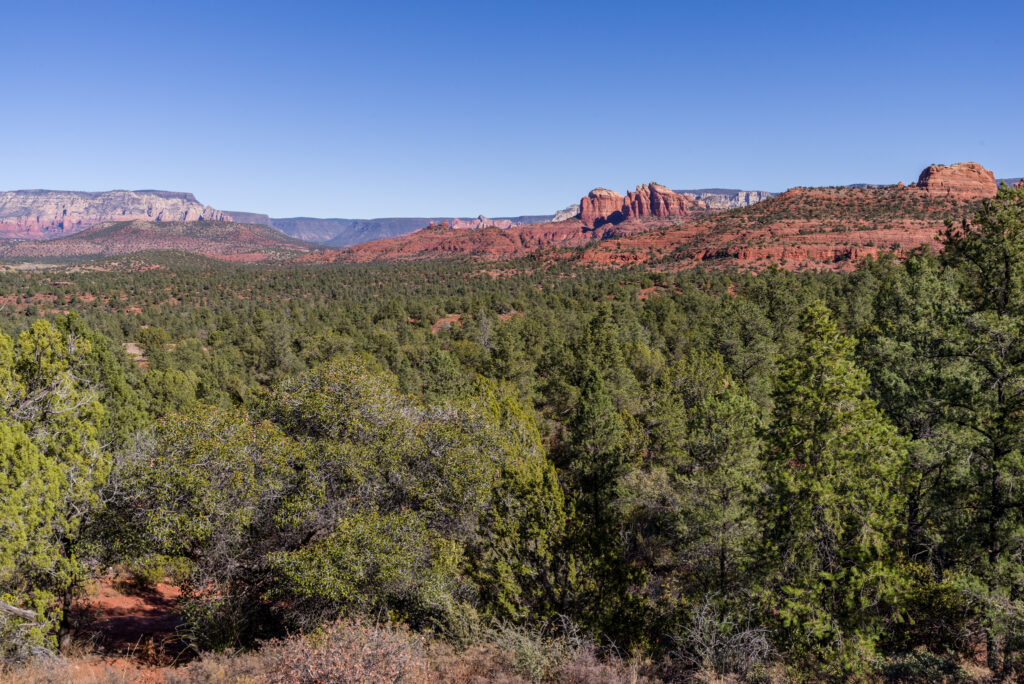
Western forests are known for their plentiful wildlife, stellar recreational opportunities, and important ecosystem services. They’re also increasingly known for their large and intense wildfires. Forests—and this unique set of challenges and opportunities—are the home for a new body of IWJV work. Our Western Forests Program focuses on improving habitat for birds and other wildlife while reducing wildfire risk and supporting the communities within forest systems.
To launch this work into reality, Adrian Leighton joined the IWJV in February 2025 as the organization’s first Western Forests Conservation Coordinator. In this role, he gets to use his passion for active forest management to help build partnerships, capacity, and the application of best-available science to improve forest health.
“The forestry profession has viable solutions to the challenges we are facing today and this new venture for the IWJV is well poised to support our partners in this field,” Leighton said. “Active forest management is an important path we need to be advancing and the IWJV’s partnership facilitation experience paired with our team’s capacity in government relationships, science to implementation, and communications all have a role.”
There are many different avenues in forest management, but at its root, the IWJV is looking to support good silviculture that mimics historical disturbances and replicates a range of conditions to which species have adapted to time. The IWJV’s initial efforts are focused on dry frequent-fire forests and persistent pinyon-juniper woodlands. In dry frequent fire forests, evidence that active management can prepare forests for fire and improve ecological resilience—the ability of the an ecosystem to maintain its functions when experiencing disturbance—is a strong impetus for focusing on these forests. Drought-based mortality and the decline of the Pinyon Jay have highlighted the need for science creation, integration, and collaborative problem-solving in pinyon-juniper woodlands. The IWJV can play an important role in this arena, which is complementary to our sagebrush program’s work.
The IWJV’s Western Forests Committee guides and advises staff work in this new program area. This committee includes individuals representing timber and energy production industries, NGO conservation implementation capacity, and natural resource agency leadership. Jim Durglo, Fire Technical Specialist for the Intertribal Timber Council, chairs the committee.
“IWJV’s vision of our work in western forests is to integrate wildfire risk reduction and bird habitat conservation, restore appropriate fire to the landscape, strengthen forest resilience, and prevent the expansion of invasive weeds,” Durglo said. “All of which is supportive of vibrant communities and much-needed work in the face of today’s conservation and resource challenges.”
Specifically, the IWJV’s work in western forests supports partners in integrating knowledge, science, and data on bird and wildlife effects of forest management into their work. It also grows capacity to implement forest management with co-benefits to birds and other wildlife and communicates the outcomes and needs of this work to relevant audiences.
Also on the IWJV’s Forest Committee is Dan Tomascheski, Senior Advisor at Sierra Pacific Industries.
“With the added capacity of Adrian on IWJV’s staff, we have an opportunity to fill a crucial partnership role within the forestry industry,” Tomascheski said. “With so much needed work across America’s western forests, this is an all-hands call-to-action for people to work together and IWJV is going to be an important player in this field.”
Before starting this new journey with the IWJV, Leighton spent 21 years at Salish Kootenai College developing forestry curriculum, teaching classes, and serving as the Director of the Center for Tribal Research and Education in Ecosystem Sciences. He was also a member of the 3rd and 4th Indian Forest Management Assessment Teams, a congressionally-mandated decadal review of the state of tribal forest management and the fulfillment of the government’s trust responsibilities and results in a report of recommended actions. Leighton is also a founding member of the Intertribal Timber Council Research Sub-committee and a two-term member of the Forest Research Advisory Council to the Secretary of Agriculture. Outside of work, Adrian enjoys hiking, cutting firewood, baking bread, and trying to get his teenager to laugh at his dad jokes (he swears it happened once!).
The IWJV is seeking opportunities for IWJV to engage in projects that increase forest health and can advance active forest management on the ground. Please feel free to reach out to Adrian at adrian.leighton@iwjv.org for more information.



